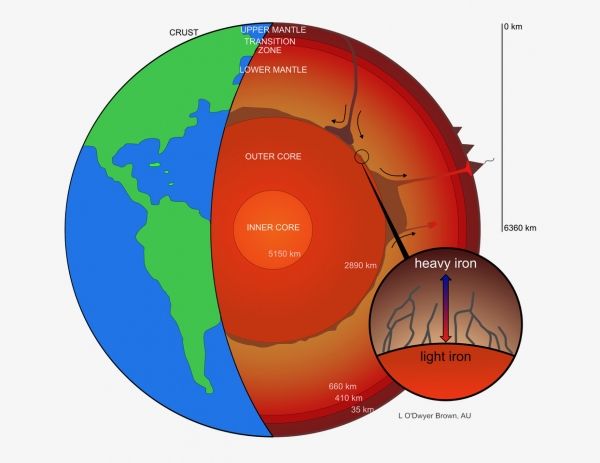The boundary between the liquid iron core and the rocky mantle is located some 1,800 miles (2,900 km) below Earth’s surface. At this transition, the temperature drops by more than a thousand degrees from the hotter core to the cooler mantle.
The new study suggests heavier iron isotopes migrate toward lower temperatures — and into the mantle — while lighter iron isotopes circulate back down into the core. (Isotopes of the same element have different numbers of neutrons, giving them slightly different masses.) This effect could cause core material infiltrating the lowermost mantle to be enriched in heavy iron isotopes.
“If correct, this stands to improve our understanding of core–mantle interaction,” said Charles Lesher, lead author, professor emeritus of geology at UC Davis and professor of earth system petrology at Aarhus University in Denmark.
Continue reading at University of California Davis
Image via University of California Davis


